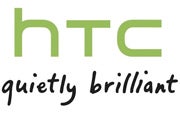
Answering questions posed by the U.S. Senate antitrust subcommittee, Google chairman Eric Schmidt called the personal voice assistant in the iPhone 4S, named Siri, a "significant development" in the search market. Schmidt went so far as to say that Siri represents a threat to Google's search business, which is the company's bread and butter.
He could be right. Here's why.
I've been using Google's voice-assisted search tool for years on iPhones and Android smartphones. It's a great tool when you don't want to (or can't) take the time to peck out search queries on a touchscreen. It's not 100% accurate, but it works well enough most of the time that I prefer it to any other search method.
That is, until Siri came along.
With the iPhone 4S, I pose all questions to Siri (when it's working). Is Siri a better search tool? Does it provide better results? Is it faster? Not necessarily, but it's a hell of a lot more entertaining. And if Siri doesn't succeed on the first try, you have the pleasure of awaiting its sassy response. This is clearly a case where personality actually counts for something.
[Looking for some new apps that take advantage of Apple's updated mobile operating system? Check out 10 Innovative iOS 5 Apps.]
"Even in the few weeks since the [previous] hearing, Apple has launched an entirely new approach to search technology with Siri, its voice-activated search and task-completion service built into the iPhone 4S," he wrote, reports AppleInsider.
Of course, Schmidt's motivation for calling Siri a competitive threat isn't because he's actually scared of Siri's impact on Google's search business. No, he's trying to allay the Senate's concerns that Google is a monopolistic entity that needs to be regulated. Schmidt is going to call up every competitor he can think of to shore up Google's defense.
"Google has many strong competitors and we sometimes fail to anticipate the competitive threat posed by new methods of accessing information," Schmidt noted. "Apple's Siri is a significant development--a voice-activated means of accessing answers through iPhones that demonstrates the innovations in search."
Innovative? Yes. Competitive? Yes. A real, immediate threat to Google's core business? Well...
Siri will not impact Google's position in the search market anytime soon. Despite the entertainment value in Siri's search powers, it's not going to dislodge Google's dominant position in the search market, at least, not for a while. While iPhone 4S users may skip Google search on their iPhones, that's one very small segment of users and doesn't account for Google's desktop search business, which is huge.
Google owns 65% of the U.S. search market, 94% of the European search market, and 97% of the smartphone search market (thanks in no small part to the raging success of its Android smartphone platform).
Siri might have an impact eventually, if Apple brings it out of beta and expands it to more than a single device. For the time being, however, Schmidt's statements ring a bit false.
The Enterprise Connect "Phone, Tablets, Smartphones--Who Gets What In Your Enterprise?" virtual event will help you sort through the choices that are out there today. It happens Nov. 16. Sign up now. (Free with registration.)

 Posted in:
Posted in: 


